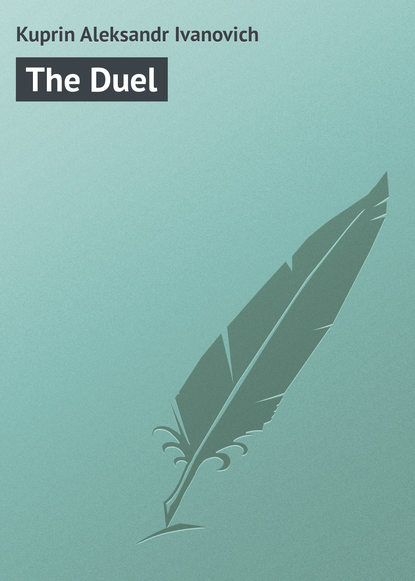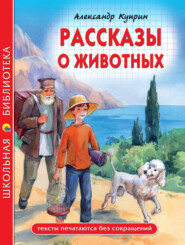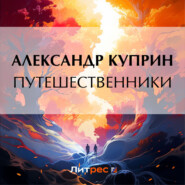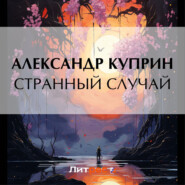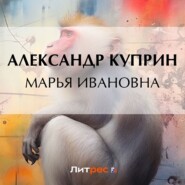По всем вопросам обращайтесь на: info@litportal.ru
(©) 2003-2024.
✖
The Duel
Настройки чтения
Размер шрифта
Высота строк
Поля
The debauch seemed at last to reach its height. All these wretched creatures were possessed, as it were, by a savage, exultant, ruthless fiend who, mocking at all the laws of sense and decency, forced his victims, by blasphemies, oaths, and all kinds of shamelessness, to abdicate the last shreds of their human dignity.
Romashov, in the smoke and stuffiness, suddenly caught sight of a person with features distorted by rage and incessant hooting, which for that reason seemed to him, in the first instant, unrecognizable. It was none other than Nikoläiev, who, now foaming with hate and fury, roared to his enemy:
“You’re a disgrace to the whole regiment, you and Nasanski! Not a word or, by God! I’ll – ”
Romashov felt that some one was pulling him, gently and cautiously, a few paces backwards. He turned round and recognized Agamalov, but at the same instant forgot him, and turned quickly round to Nikoläiev. White with suppressed rage, he answered in a low, hoarse voice and a forced and bitter smile —
“What reason have you to mention Nasanski’s name? But perhaps you have some private, secret cause for hating him?”
“Rascal, scoundrel, your hour is come!” screamed Nikoläiev in a loud, trembling voice. With flashing eyes he raised his tightly clenched fist to Romashov’s face, but the expected blow never fell. Romashov experienced a momentary fear, together with a torturing, sickening sensation in his chest and ribs, and he now noticed, for the first time, that he was grasping some object with the fingers of his right hand. Then with a rapid movement he threw the remains of his half-emptied glass of ale into Nikoläiev’s face.
Instantly after this a violent blow in the region of his left eye struck him like a deafening thunderclap, and with the howl of a wounded wild beast, Romashov rushed at his foe. A heavy fall, and the two rolled over one another on the ground with furious blows and kicks. A thick cloud of dust eddied round the combatants; chairs and tables were flung in all directions, but the two continued, with unabated fury, to force, in turn, each other’s head against the filthy floor, and panting and with rattling throats, tried to tear each other to pieces. Romashov knew he had managed somehow or other to get his fingers well into Nikoläiev’s mouth at one of the corners, and he strove with all his might to rend Nikoläiev’s cheek, with the object of destroying those hateful features for all time. He himself, however, felt no pain when his head and elbows were bumped time after time, in the course of the fight, against the hard floor.
He had not the slightest notion as to how the battle finally ended. He suddenly found himself standing in a corner, plucked from the fight by kindly hands, and, by the same well-meaning helper, prevented from renewing his attack on Nikoläiev. Biek-Agamalov handed Romashov a glass of water, and his teeth could be heard chattering, through the convulsive twitchings of his lower jaw, against the side of the glass. His uniform was torn to tatters in the back and elbows, and one shoulder-strap swung hither and thither on its torn fastening. Romashov was unable to speak, but his silent lips moved incessantly in fruitless efforts to whisper audibly —
“I’ll – show – him. I challenge him.”
Old Liech, who had been in a delightful slumber at the edge of his table during all that fearful row, now arose fully awake, sober, and severe in countenance, and, in a bitter and hectoring tone rarely employed by him, said —
“Gentlemen, in my capacity as the eldest here present, I order you all to leave the mess instantly, and to go to your respective quarters. A report of what has taken place here to-night is to be handed in to the commander of the regiment to-morrow.”
The order was obeyed without the slightest demur. All departed, cowed and shamefaced, and consequently shy at meeting each other’s glances. Each individual dreaded to read in his comrade’s eyes his own shame and self-contempt, and they all gave one the impression of dirty little malicious animals, to whose dim and undeveloped brains a gleam of human understanding had suddenly managed to grope its way.
Day began to dawn. A delightful, glorious morning with a clear, fleckless sky, refreshing coolness, and infinite harmony and peace. The moist trees, wrapped in thin, curling exhalations arising from the earth, and scarcely visible to the eye, had just awakened silently and imperceptibly from their deep, mysterious, nocturnal sleep. And when Romashov, on his way home, glanced at them, at the sky, and at the grass faintly sparkling like silver in the dew, he felt himself so low, vile, degenerate, and disgusting that he realized, with unutterable melancholy, how unworthy he was to be greeted by the innocent, smiling child-eyes of awakening Nature.
XX
ON that same day – it was Wednesday – Romashov received the following curt official communication —
The Court of Honour of the – th Infantry Regiment hereby requests Sub-lieutenant Romashov to attend at 6 p.m. the officers’ common-room. Dress: ordinary uniform.
LIEUTENANT-COLONEL MIGUNOV,
President of the Court.
On perusing the letter, Romashov could not restrain an ironical smile. This so-called “ordinary uniform,” i.e. undress uniform with shoulder-knots and belt, was to be worn, under the most extraordinary circumstances, before the Court, for public reprimand, when appearing for examination by the commander of his regiment, etc., etc.
At 6 p.m. Romashov put in an appearance at the mess, and told the orderly to send in his name to the president. The answer was to the effect that he was to wait. Romashov sat down by an open window in the dining-room, took up a paper and began to read; but he did not understand a word of the contents: everything seemed to him so uninteresting as he cast his eyes mechanically down one column after another. Three officers who were in the mess before Romashov returned his salutation with marked coldness, and continued their conversation in a low voice, with the obvious intention of preventing Romashov from catching what they were saying. Only one of them, Michin, pressed Romashov’s hand long and warmly, with moist eyes, blushing and tongue-tied. He at once turned away, put on his cloak and hat hurriedly and awkwardly, and ran out of the room.
Nikoläiev shortly afterwards entered through the buffet. He was pale, his eyelids were of a bluish hue, his left hand was shaking with spasmodic twitches, and just below his temples a bluish swelling was visible. At once the recollection of the fight on the previous day came to Romashov with painful distinctness. He hung his head, frowned, and, almost annihilated with shame, hid himself behind his newspaper. He closed his eyes, and listened in nervous tension to every sound in the room.
Romashov heard Nikoläiev order a glass of cognac from the waiter, and then greet one of the company. After that he walked up to where Romashov was sitting, and passed him quite closely. Somebody left the room, the door of which was shut again. A few seconds later Romashov heard in a whispering tone behind him —
“Don’t look back. Sit still and listen carefully to what I have to say.”
It was Nikoläiev. The newspaper shook in Romashov’s hands.
“As you’re aware, all conversation between us is now forbidden; but damn all these French niceties. What occurred yesterday can never be put straight again, made little of, or be consigned to oblivion. In spite of everything, however, I regard you as a man of conscience and honour. I implore you – do you hear? – I implore you, not a word about my wife and the anonymous letters. You understand me?”
Romashov, who was hidden by the newspaper from the eyes of his brother officer, made a slow inclination of his head. The sound of steps crunching the sand was audible from the courtyard. Romashov allowed a few minutes to elapse, after which he turned round and glanced through the window. Nikoläiev had gone.
“Your Honour!” the orderly suddenly stood, as if he had risen from the earth, at Romashov’s side. “I am ordered to ask you to walk in.”
Along one side of the wall were placed several card tables, over which a green cloth had been spread. Behind these tables sat the members of the court, with their backs to the window. In consequence of this, it was difficult to distinguish their faces. In the midst of them, in an arm-chair, was seated Lieutenant-Colonel Migunov, the president – a fat, pursy man without a neck, but with big, round shoulders which protruded in quite an unnatural manner. On each side of Migunov sat Lieutenant-Colonels Rafalski and Liech, and moreover, on the right, Osadchi and Peterson; on the left, Captain Duvernois and the commissary to the regiment, Staff-Captain Doroshenko. The table in front of all these gentlemen was virtually empty, except that before Doroshenko, the court prosecutor-in-ordinary, lay a heap of papers. It was cold and dark in the great, bare room, although out-of-doors the sunshine was gloriously warm. Everywhere the nose was assailed by a drowsy smell of mustiness and rotting, moth-eaten furniture.
The president laid his big, white, fat hands on the tablecloth, examined them minutely, and then began in a dry, official tone —
“Sub-lieutenant Romashov, the Officers’ Court of Honour, which meets to-day by order of the commander of the regiment, is directed to examine closely into the circumstances of the deplorable and, to the officers as a body, disgraceful scene that took place between you and Lieutenant Nikoläiev last night, and it is incumbent on you to render to us a most punctilious account of what you have to say with regard to this painful affair.”
Romashov stood before his judges with his arms hanging down, and plucked at the fur lining of his cap. He felt like a hunted animal, but at the same time as clumsy, feeble, and indifferent to everything as a schoolboy just “ploughed” at an examination is to his teachers’ threats and his school-fellows’ jeers. Coughing and stammering, in unconnected phrases and with contradictions and repetitions, Romashov began his report. At the same time, and whilst slowly observing the high “tribunal” seated before him, he made a sort of appraisement of the private or personal feelings of its individual members towards him. “Migunov has a heart of stone, and it is a matter of supreme indifference to him how the affair turns out; but the place of honour as president and the great responsibility attached to it are, in the highest degree, flattering to his vanity. Lieutenant-Colonel ‘Brehm’ is looking miserable. Oh, you good old chap, perhaps you are sitting thinking of that ten-rouble note which was never returned to you? Old Liech looks glum. He’s sober to-day in honour of the occasion, but the pouches under his eyes are bigger than usual. He’s not my enemy, but has so many sins of his own to answer that he must take advantage of the occasion, and play the part of guardian and protector of morality and the ‘honour of an officer.’ So far as Osadchi and Peterson are concerned, they are both notoriously my enemies. By invoking the law, I might certainly challenge Osadchi – the whole of the row began through his blasphemously parodying the Mass for the Dead – but what then? The result in any case will be the same. Peterson smiles out of one corner of his mouth in his usual snake-like way. I am just wondering what share he had in those anonymous letters. Duvernois – a sleepy beast, whose great, troubled eyes put one in mind of a cuttlefish’s. Ah, yes, I’ve never been one of Duvernois’s favourites, and just as little of Doroshenko’s. Yuri Alexievich, my dear boy, the prospect does indeed look gloomy for you.”
“One instant, if you please,” interrupted Osadchi. “President, will you permit me to put a question?”
“Certainly,” replied Migunov, with a gracious nod.
“Tell me, Sub-lieutenant Romashov,” began Osadchi, in an affectedly imposing and drawling tone, “where were you before you came to the mess in such an inexcusable condition?”
Romashov blushed deeply, and felt big drops of sweat on his forehead.
“I was – I was,” he stammered, “I was in a brothel,” he added almost in a whisper.
“Ha, ha – in a brothel,” repeated Osadchi, as he purposely raised his voice and pronounced every word with unsparing distinctness. “And no doubt you had drinks there.”
“Yes, I had been drinking,” answered Romashov, in an abrupt tone.
“I have no wish to put any more questions,” said Osadchi, turning with a bow to the president.
“Sub-lieutenant, be good enough to continue your report,” resumed Migunov, “You remember you have acknowledged that you threw the glass of ale at Nikoläiev – well?”
Romashov began his story again as unmethodically and unconnectedly as before, but honourably endeavouring not to give any details. He had already, in an indirect way and with much shame, succeeded in expressing the regret he felt at his unworthy conduct, when he was once more interrupted, this time by Captain Peterson. The latter was rubbing his long, yellow-wax coloured hands with their sharp, dirty finger-nails just as if he were washing himself, and said in his studiously polite – nay, almost friendly – thin, wheedling voice —
“Ah, all that is quite fit and proper, and such a voluntary confession, in a way, does you credit; but tell me, were you not, before this painful story began, in the habit of visiting Lieutenant Nikoläiev’s house?”
Romashov drew himself up and, looking straight, not at Captain Peterson, but at Migunov, replied bluntly:
“That is true, but I cannot understand what that has to do with the matter.”
“Pray don’t get excited,” exclaimed Peterson. “I only want you to answer my questions. Tell me then, was there any special cause of mutual enmity between you and Lieutenant Nikoläiev? I do not mean any difference in the service, but a cause of a quite – er – if I may so put it, domestic nature?”
Romashov pulled himself up to his full height, and his glance pierced with undisguised hatred his enemy’s treacherous, black, consumptive eyes.
“I have not visited Lieutenant Nikoläiev’s home more frequently than those of my other acquaintances,” he replied in a hard and cutting tone. “No previous enmity has existed between us. The whole thing happened unexpectedly and accidentally, when we were both the worse for liquor.”
“Heh, heh, heh, we have already heard about the insobriety,” Captain Peterson chimed in; “but I will ask you once more, had not an unfriendly meeting already taken place between you and Lieutenant Nikoläiev? I do not for an instant suggest that you had quarrelled or come to blows, but quite simply that – how shall I put it? – you were a little at variance in your views of certain scandalous reports and intrigues?”
“President, am I bound to reply to all questions that are put to me?” exclaimed Romashov.
“That rests entirely with you,” replied Migunov coldly. “You can, if you wish, absolutely refuse to answer. You can also commit your answer to writing. That is your privilege.”
“In such case I hereby declare that I will not answer any of Captain Peterson’s questions, and that not only in my interest but in his.”
Romashov, in the smoke and stuffiness, suddenly caught sight of a person with features distorted by rage and incessant hooting, which for that reason seemed to him, in the first instant, unrecognizable. It was none other than Nikoläiev, who, now foaming with hate and fury, roared to his enemy:
“You’re a disgrace to the whole regiment, you and Nasanski! Not a word or, by God! I’ll – ”
Romashov felt that some one was pulling him, gently and cautiously, a few paces backwards. He turned round and recognized Agamalov, but at the same instant forgot him, and turned quickly round to Nikoläiev. White with suppressed rage, he answered in a low, hoarse voice and a forced and bitter smile —
“What reason have you to mention Nasanski’s name? But perhaps you have some private, secret cause for hating him?”
“Rascal, scoundrel, your hour is come!” screamed Nikoläiev in a loud, trembling voice. With flashing eyes he raised his tightly clenched fist to Romashov’s face, but the expected blow never fell. Romashov experienced a momentary fear, together with a torturing, sickening sensation in his chest and ribs, and he now noticed, for the first time, that he was grasping some object with the fingers of his right hand. Then with a rapid movement he threw the remains of his half-emptied glass of ale into Nikoläiev’s face.
Instantly after this a violent blow in the region of his left eye struck him like a deafening thunderclap, and with the howl of a wounded wild beast, Romashov rushed at his foe. A heavy fall, and the two rolled over one another on the ground with furious blows and kicks. A thick cloud of dust eddied round the combatants; chairs and tables were flung in all directions, but the two continued, with unabated fury, to force, in turn, each other’s head against the filthy floor, and panting and with rattling throats, tried to tear each other to pieces. Romashov knew he had managed somehow or other to get his fingers well into Nikoläiev’s mouth at one of the corners, and he strove with all his might to rend Nikoläiev’s cheek, with the object of destroying those hateful features for all time. He himself, however, felt no pain when his head and elbows were bumped time after time, in the course of the fight, against the hard floor.
He had not the slightest notion as to how the battle finally ended. He suddenly found himself standing in a corner, plucked from the fight by kindly hands, and, by the same well-meaning helper, prevented from renewing his attack on Nikoläiev. Biek-Agamalov handed Romashov a glass of water, and his teeth could be heard chattering, through the convulsive twitchings of his lower jaw, against the side of the glass. His uniform was torn to tatters in the back and elbows, and one shoulder-strap swung hither and thither on its torn fastening. Romashov was unable to speak, but his silent lips moved incessantly in fruitless efforts to whisper audibly —
“I’ll – show – him. I challenge him.”
Old Liech, who had been in a delightful slumber at the edge of his table during all that fearful row, now arose fully awake, sober, and severe in countenance, and, in a bitter and hectoring tone rarely employed by him, said —
“Gentlemen, in my capacity as the eldest here present, I order you all to leave the mess instantly, and to go to your respective quarters. A report of what has taken place here to-night is to be handed in to the commander of the regiment to-morrow.”
The order was obeyed without the slightest demur. All departed, cowed and shamefaced, and consequently shy at meeting each other’s glances. Each individual dreaded to read in his comrade’s eyes his own shame and self-contempt, and they all gave one the impression of dirty little malicious animals, to whose dim and undeveloped brains a gleam of human understanding had suddenly managed to grope its way.
Day began to dawn. A delightful, glorious morning with a clear, fleckless sky, refreshing coolness, and infinite harmony and peace. The moist trees, wrapped in thin, curling exhalations arising from the earth, and scarcely visible to the eye, had just awakened silently and imperceptibly from their deep, mysterious, nocturnal sleep. And when Romashov, on his way home, glanced at them, at the sky, and at the grass faintly sparkling like silver in the dew, he felt himself so low, vile, degenerate, and disgusting that he realized, with unutterable melancholy, how unworthy he was to be greeted by the innocent, smiling child-eyes of awakening Nature.
XX
ON that same day – it was Wednesday – Romashov received the following curt official communication —
The Court of Honour of the – th Infantry Regiment hereby requests Sub-lieutenant Romashov to attend at 6 p.m. the officers’ common-room. Dress: ordinary uniform.
LIEUTENANT-COLONEL MIGUNOV,
President of the Court.
On perusing the letter, Romashov could not restrain an ironical smile. This so-called “ordinary uniform,” i.e. undress uniform with shoulder-knots and belt, was to be worn, under the most extraordinary circumstances, before the Court, for public reprimand, when appearing for examination by the commander of his regiment, etc., etc.
At 6 p.m. Romashov put in an appearance at the mess, and told the orderly to send in his name to the president. The answer was to the effect that he was to wait. Romashov sat down by an open window in the dining-room, took up a paper and began to read; but he did not understand a word of the contents: everything seemed to him so uninteresting as he cast his eyes mechanically down one column after another. Three officers who were in the mess before Romashov returned his salutation with marked coldness, and continued their conversation in a low voice, with the obvious intention of preventing Romashov from catching what they were saying. Only one of them, Michin, pressed Romashov’s hand long and warmly, with moist eyes, blushing and tongue-tied. He at once turned away, put on his cloak and hat hurriedly and awkwardly, and ran out of the room.
Nikoläiev shortly afterwards entered through the buffet. He was pale, his eyelids were of a bluish hue, his left hand was shaking with spasmodic twitches, and just below his temples a bluish swelling was visible. At once the recollection of the fight on the previous day came to Romashov with painful distinctness. He hung his head, frowned, and, almost annihilated with shame, hid himself behind his newspaper. He closed his eyes, and listened in nervous tension to every sound in the room.
Romashov heard Nikoläiev order a glass of cognac from the waiter, and then greet one of the company. After that he walked up to where Romashov was sitting, and passed him quite closely. Somebody left the room, the door of which was shut again. A few seconds later Romashov heard in a whispering tone behind him —
“Don’t look back. Sit still and listen carefully to what I have to say.”
It was Nikoläiev. The newspaper shook in Romashov’s hands.
“As you’re aware, all conversation between us is now forbidden; but damn all these French niceties. What occurred yesterday can never be put straight again, made little of, or be consigned to oblivion. In spite of everything, however, I regard you as a man of conscience and honour. I implore you – do you hear? – I implore you, not a word about my wife and the anonymous letters. You understand me?”
Romashov, who was hidden by the newspaper from the eyes of his brother officer, made a slow inclination of his head. The sound of steps crunching the sand was audible from the courtyard. Romashov allowed a few minutes to elapse, after which he turned round and glanced through the window. Nikoläiev had gone.
“Your Honour!” the orderly suddenly stood, as if he had risen from the earth, at Romashov’s side. “I am ordered to ask you to walk in.”
Along one side of the wall were placed several card tables, over which a green cloth had been spread. Behind these tables sat the members of the court, with their backs to the window. In consequence of this, it was difficult to distinguish their faces. In the midst of them, in an arm-chair, was seated Lieutenant-Colonel Migunov, the president – a fat, pursy man without a neck, but with big, round shoulders which protruded in quite an unnatural manner. On each side of Migunov sat Lieutenant-Colonels Rafalski and Liech, and moreover, on the right, Osadchi and Peterson; on the left, Captain Duvernois and the commissary to the regiment, Staff-Captain Doroshenko. The table in front of all these gentlemen was virtually empty, except that before Doroshenko, the court prosecutor-in-ordinary, lay a heap of papers. It was cold and dark in the great, bare room, although out-of-doors the sunshine was gloriously warm. Everywhere the nose was assailed by a drowsy smell of mustiness and rotting, moth-eaten furniture.
The president laid his big, white, fat hands on the tablecloth, examined them minutely, and then began in a dry, official tone —
“Sub-lieutenant Romashov, the Officers’ Court of Honour, which meets to-day by order of the commander of the regiment, is directed to examine closely into the circumstances of the deplorable and, to the officers as a body, disgraceful scene that took place between you and Lieutenant Nikoläiev last night, and it is incumbent on you to render to us a most punctilious account of what you have to say with regard to this painful affair.”
Romashov stood before his judges with his arms hanging down, and plucked at the fur lining of his cap. He felt like a hunted animal, but at the same time as clumsy, feeble, and indifferent to everything as a schoolboy just “ploughed” at an examination is to his teachers’ threats and his school-fellows’ jeers. Coughing and stammering, in unconnected phrases and with contradictions and repetitions, Romashov began his report. At the same time, and whilst slowly observing the high “tribunal” seated before him, he made a sort of appraisement of the private or personal feelings of its individual members towards him. “Migunov has a heart of stone, and it is a matter of supreme indifference to him how the affair turns out; but the place of honour as president and the great responsibility attached to it are, in the highest degree, flattering to his vanity. Lieutenant-Colonel ‘Brehm’ is looking miserable. Oh, you good old chap, perhaps you are sitting thinking of that ten-rouble note which was never returned to you? Old Liech looks glum. He’s sober to-day in honour of the occasion, but the pouches under his eyes are bigger than usual. He’s not my enemy, but has so many sins of his own to answer that he must take advantage of the occasion, and play the part of guardian and protector of morality and the ‘honour of an officer.’ So far as Osadchi and Peterson are concerned, they are both notoriously my enemies. By invoking the law, I might certainly challenge Osadchi – the whole of the row began through his blasphemously parodying the Mass for the Dead – but what then? The result in any case will be the same. Peterson smiles out of one corner of his mouth in his usual snake-like way. I am just wondering what share he had in those anonymous letters. Duvernois – a sleepy beast, whose great, troubled eyes put one in mind of a cuttlefish’s. Ah, yes, I’ve never been one of Duvernois’s favourites, and just as little of Doroshenko’s. Yuri Alexievich, my dear boy, the prospect does indeed look gloomy for you.”
“One instant, if you please,” interrupted Osadchi. “President, will you permit me to put a question?”
“Certainly,” replied Migunov, with a gracious nod.
“Tell me, Sub-lieutenant Romashov,” began Osadchi, in an affectedly imposing and drawling tone, “where were you before you came to the mess in such an inexcusable condition?”
Romashov blushed deeply, and felt big drops of sweat on his forehead.
“I was – I was,” he stammered, “I was in a brothel,” he added almost in a whisper.
“Ha, ha – in a brothel,” repeated Osadchi, as he purposely raised his voice and pronounced every word with unsparing distinctness. “And no doubt you had drinks there.”
“Yes, I had been drinking,” answered Romashov, in an abrupt tone.
“I have no wish to put any more questions,” said Osadchi, turning with a bow to the president.
“Sub-lieutenant, be good enough to continue your report,” resumed Migunov, “You remember you have acknowledged that you threw the glass of ale at Nikoläiev – well?”
Romashov began his story again as unmethodically and unconnectedly as before, but honourably endeavouring not to give any details. He had already, in an indirect way and with much shame, succeeded in expressing the regret he felt at his unworthy conduct, when he was once more interrupted, this time by Captain Peterson. The latter was rubbing his long, yellow-wax coloured hands with their sharp, dirty finger-nails just as if he were washing himself, and said in his studiously polite – nay, almost friendly – thin, wheedling voice —
“Ah, all that is quite fit and proper, and such a voluntary confession, in a way, does you credit; but tell me, were you not, before this painful story began, in the habit of visiting Lieutenant Nikoläiev’s house?”
Romashov drew himself up and, looking straight, not at Captain Peterson, but at Migunov, replied bluntly:
“That is true, but I cannot understand what that has to do with the matter.”
“Pray don’t get excited,” exclaimed Peterson. “I only want you to answer my questions. Tell me then, was there any special cause of mutual enmity between you and Lieutenant Nikoläiev? I do not mean any difference in the service, but a cause of a quite – er – if I may so put it, domestic nature?”
Romashov pulled himself up to his full height, and his glance pierced with undisguised hatred his enemy’s treacherous, black, consumptive eyes.
“I have not visited Lieutenant Nikoläiev’s home more frequently than those of my other acquaintances,” he replied in a hard and cutting tone. “No previous enmity has existed between us. The whole thing happened unexpectedly and accidentally, when we were both the worse for liquor.”
“Heh, heh, heh, we have already heard about the insobriety,” Captain Peterson chimed in; “but I will ask you once more, had not an unfriendly meeting already taken place between you and Lieutenant Nikoläiev? I do not for an instant suggest that you had quarrelled or come to blows, but quite simply that – how shall I put it? – you were a little at variance in your views of certain scandalous reports and intrigues?”
“President, am I bound to reply to all questions that are put to me?” exclaimed Romashov.
“That rests entirely with you,” replied Migunov coldly. “You can, if you wish, absolutely refuse to answer. You can also commit your answer to writing. That is your privilege.”
“In such case I hereby declare that I will not answer any of Captain Peterson’s questions, and that not only in my interest but in his.”





